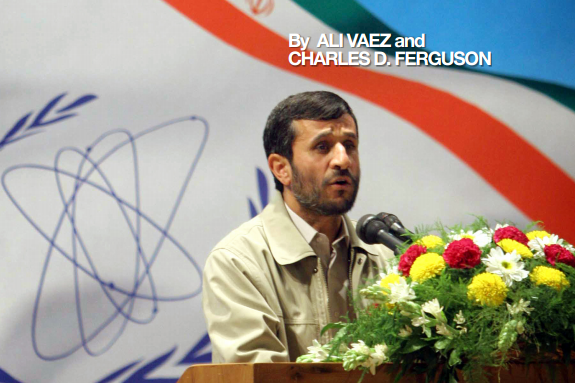
Towards Enhanced Safeguards for Iran’s Nuclear Program
Iran’s controversial nuclear program has been front and center on the international stage for more than eight years. Despite negotiations, sanctions, and political tug-of-war, the United States and its allies have yet to tame Iran’s atomic phoenix. At the center of this nuclear standoff is Iran’s controversial uranium enrichment program and efforts to obtain full nuclear fuel-cycle capabilities. To alleviate concerns about the intended nature of these activities, the United Nations Security Council (UNSC) has demanded -through six resolutions – that Iran suspend enrichment activities as well as construction of a heavy-water research reactor. Yet, Iran has opted to pay no heed to these resolutions and despite numerous proposals from different sides, the stalemate persists.
Dr. Charles D. Ferguson and Dr. Ali Vaez, authored a FAS report (PDF) analyzing the outstanding issues regarding Iran’s nuclear program, and provide recommendations to the major stakeholders in this debate including Iran, the United States, Russia and the International Atomic Energy Agency (IAEA).
Additionally, the report proposes a multipronged approach to resolving this deadlock, including enhanced safeguards and positive-sum diplomacy with incentives for Iran and other aspiring nuclear states.
The last remaining agreement limiting U.S. and Russian nuclear weapons has now expired. For the first time since 1972, there is no treaty-bound cap on strategic nuclear weapons.
The Pentagon’s new report provides additional context and useful perspectives on events in China that took place over the past year.
Successful NC3 modernization must do more than update hardware and software: it must integrate emerging technologies in ways that enhance resilience, ensure meaningful human control, and preserve strategic stability.
The FY2026 National Defense Authorization Act (NDAA) paints a picture of a Congress that is working to both protect and accelerate nuclear modernization programs while simultaneously lacking trust in the Pentagon and the Department of Energy to execute them.